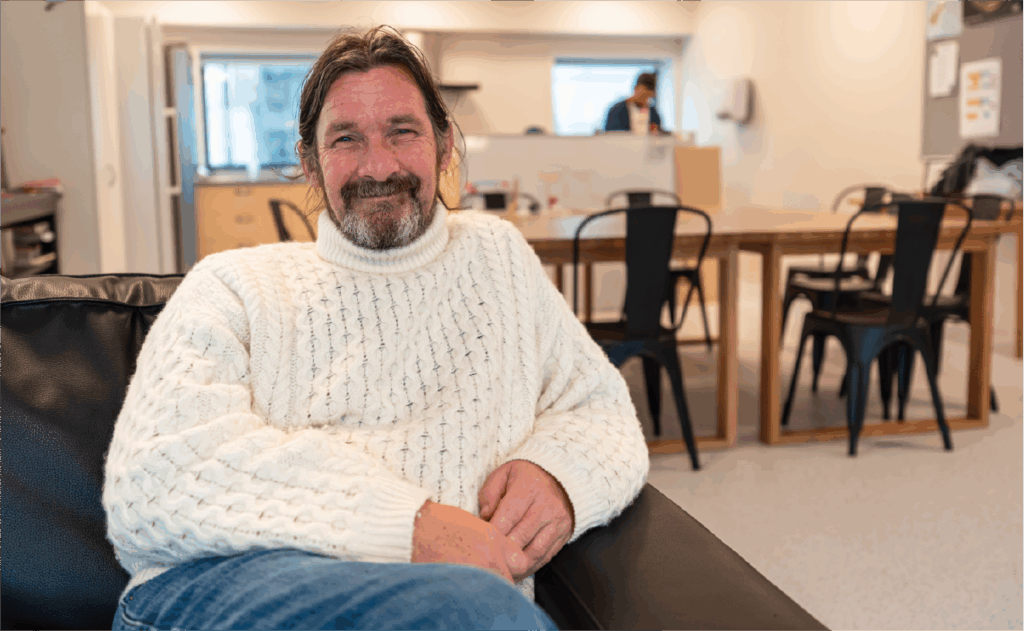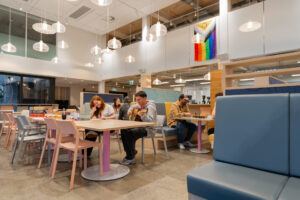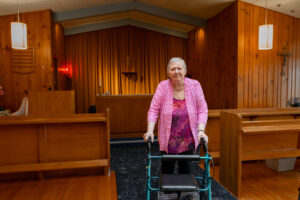
Site Manager of our alcohol harm reduction service, Matt Petrie reflects on a year of caring for residents – who we call whānau:
Traditionally there’s been a range of housing for people, from ‘dry houses’ where no one drinks, to places in the middle where you can go off-site to drink, and so-called ‘wet houses’ where people can drink as they wish. We’re not doing any of those things at Te Pā Maru.
What we’re doing here is new and cutting edge. Te Pā Maru allows for controlled and managed alcohol consumption that treats alcohol in the same clinical way you would a medication. It avoids people getting highly intoxicated, but we also don’t want people to be in withdrawal and unable to cope. By finding the right space, we can work with our whānau to try and shift their perception of the world and help them make positive changes to live the best life they can.
Looking back at our first year, I think what’s most important to consider is not what our service does every day, but the impact it has on our whānau. Every person who is with us now has reduced their alcohol consumption. The vast majority of them have drastically improved their lives.
It’s important to understand that the people who come here have a severe alcohol addiction. They’re not able to give it up, but they’re also unable to manage living independently. The reality is that alcohol will always be a part of their lives, but their relationship with it is not at all fun, it’s a psychological need.
On the street, alcohol is boom or bust, which means drinking to excess when you have money, then going through withdrawals or turning to even more harmful chemicals when you don’t. And while there’s never a good time to be homeless, a cold winter just isolates you more, amplifies all of the underlying issues, and is a direct threat to your physical wellbeing.
For context, when someone first arrives, they’re struggling with everything mentally and physically. They’re completely exhausted or even bedridden, underweight, shaking, drinking a lot, and psychologically in a really bad place. Te Pā Maru offers our whānau a safe home and a reliable routine. They have genuine people around who are asking, “Are you OK – can we do anything for you?” There’s also something about coming into a place that is light, warm, well looked-after and full of life. It all shows that we care, and that’s what people want to feel most when they come through our door.

In only a matter of weeks, you start to notice change, and it’s always the physical first. Whānau have stabilised their drinking, they’re sleeping and eating better, and they’re starting to take personal care. Psychological change, though, always takes a lot longer. When you go through the backgrounds of everyone who is here, you hear horrific stories that you wouldn’t want to share. Our whānau have been abandoned by those who should be caring for them, often in childhood. They end up with really severe traumas, and have no home, no support network, and no hope. By finally offering someone a sense of belonging and safety, we’re paying some recompense for what’s happened to them in the past.
Eyes are on us here, and we want to be very open about what we’re doing so we can share our learnings. Most importantly though, everyone who gets to see what is happening here believes that this really is worthwhile.





